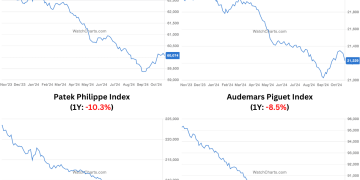Credits: Article and images by Oliver R Müller @ Revolution Watch Magazine. See the original article here - https://revolutionwatch.com/rolex-acquires-bucherer-analysis/


Is Rolex’s acquisition of Bucherer a defensive move or a well-thought-through long-term strategy?
To close a deal when buying or merging two companies, you need the perfect timing, and in this case, the Bucherer deal definitely ticks the box. The company had to solve the succession problem of the owner — representing the third generation — being 87 years old and with no children, to ensure the long-term perspective of a very successful business. Mr. Bucherer himself had communicated many times on that matter, saying that the business would be owned by a trust after his death. Even though the company is well managed, Rolex probably sensed that at some point it could do it more efficiently, or that the trust could sell the business and reinvest the proceeds of the sale. It is easily understandable that Rolex didn’t want to bear the risk seeing its number one retailer — generating roughly 8% of the brand’s sales — being bought by a competing company. At the same time, one could question the upside for, say, Richemont to buy a retailer whose business is ~60% based on selling Rolex watches, which represents a cluster risk. Nevertheless, Bucherer represents a fantastic network of points of sales; for instance, in the US — Rolex’s most important market — it acquired the number one retail network with Tourneau.
Credits: Article and images by Oliver R Müller @ Revolution Watch Magazine. See the original article here - https://revolutionwatch.com/rolex-acquires-bucherer-analysis/











